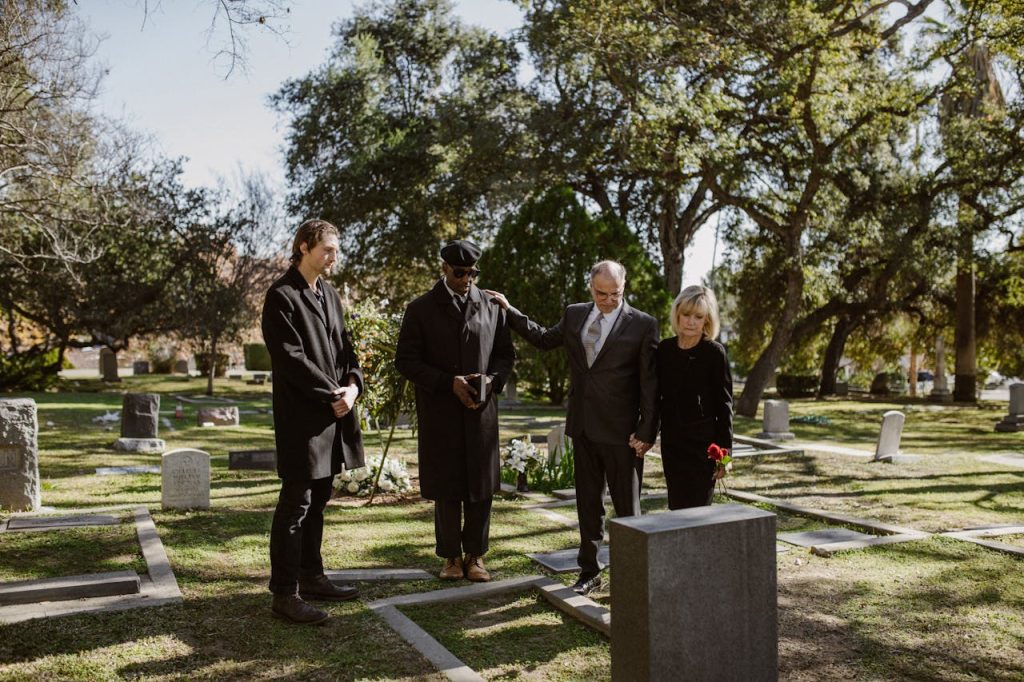
Losing a loved one is almost always painted as a time of deep sorrow, but the truth is more complicated than we often admit. For some, the death of a family member or close friend brings not just grief, but also a sense of relief, sometimes accompanied by guilt or confusion. This reaction is rarely discussed openly, yet it’s more common than you might think. Understanding why some people feel secretly relieved when a loved one dies can help us process our own emotions and support others through complex grief. If you’ve ever felt this way, you’re not alone; there are valid reasons behind these feelings. Let’s explore why this happens and what it means for your emotional and financial well-being.
1. The End of Caregiver Burnout
Caring for a chronically ill or aging loved one can be emotionally and physically exhausting. Many caregivers spend years juggling work, family, and the relentless demands of caregiving, often at the expense of their own health and happiness. When the person they care for passes away, it’s natural to feel a sense of relief that the daily stress and exhaustion have ended. This doesn’t mean the caregiver didn’t love the person; it simply means they’re human. According to the Family Caregiver Alliance, caregivers are at higher risk for depression and chronic illness themselves. The relief that comes with the end of caregiving is a sign that the burden was real and significant.
2. Release from Toxic Relationships
Not all relationships are healthy or loving. Some people endure years of emotional, physical, or financial abuse from a family member. When that person dies, it can feel like a weight has been lifted. The relief comes from knowing that the source of pain or manipulation is gone, and there’s finally space to heal. This is especially true in cases where the loved one’s behavior caused ongoing stress or trauma. If you’ve experienced this, it’s important to acknowledge your feelings without judgment. Psychology Today notes that relief is a valid response to the end of a toxic relationship, even if it’s mixed with sadness.
3. Financial Pressures Are Lifted
Money is a major source of stress in many families, especially when a loved one requires expensive medical care or long-term support. Sometimes, the death of a loved one brings financial relief, either because costly care is no longer needed or because of an inheritance or life insurance payout. While it may feel uncomfortable to admit, this financial relief can be significant, allowing survivors to pay off debt, save for the future, or simply breathe easier. It’s important to recognize that financial stress can impact your mental health, and feeling relieved when it’s gone is a normal human reaction.
4. The End of Anticipatory Grief
When someone you love is terminally ill, you may begin grieving long before they actually pass away. This is known as anticipatory grief, and it can be emotionally draining. By the time the death occurs, you may have already processed much of your sadness, leaving room for relief that the waiting and uncertainty are over. This doesn’t mean you won’t miss the person, but it does mean you’re ready to move forward. Anticipatory grief is a well-documented phenomenon; recognizing it can help you understand your emotional journey.
5. Freedom to Reclaim Your Life
Sometimes, the needs or expectations of a loved one can put your own life on hold. You might have delayed career opportunities, travel, or personal goals to care for someone else. When that person dies, you may feel a sense of freedom to pursue your own dreams again. This isn’t selfish—it’s a natural part of moving on. Reclaiming your life after loss is a healthy step, and it’s okay to feel excited about new possibilities, even as you honor the memory of your loved one.
6. Relief from Family Conflict
Family dynamics can become especially tense during illness or after a death. Disagreements over care decisions, inheritance, or funeral arrangements can create lasting rifts. When a loved one passes, it can sometimes bring an end to ongoing arguments or power struggles. The relief comes from the end of conflict and the opportunity to rebuild relationships or establish new boundaries. If you find yourself feeling lighter after a period of family drama, know that this is a common and understandable reaction.
7. Permission to Feel Your True Emotions
Society often expects us to grieve in a certain way, but real emotions are rarely that simple. Feeling relief after a loved one dies doesn’t make you a bad person—it makes you honest. Giving yourself permission to feel whatever comes up, without guilt or shame, is crucial for healing. Talking to a therapist or joining a support group can help you process these complex emotions in a healthy way. Remember, grief is personal, and there’s no right or wrong way to experience it.
Embracing the Complexity of Grief
Grief is rarely straightforward, and feeling relief when a loved one dies is more common than most people realize. Whether it’s the end of caregiver burnout, release from a toxic relationship, or the lifting of financial pressures, these feelings are valid and deserve acknowledgment. By understanding the reasons behind your emotions, you can move forward with greater self-compassion and resilience. If you’re struggling, reach out for support—there’s no need to navigate this journey alone.
Have you ever felt relief after losing a loved one? Share your thoughts or experiences in the comments below—your story might help someone else feel less alone.
Read More
Who Pays the Shocking Truth About Medical Bills After Death
7 Surprising Ways Family Members Can Be Cut Out of an Inheritance
The post Why Some People Are Secretly Relieved When a Loved One Dies appeared first on The Free Financial Advisor.







